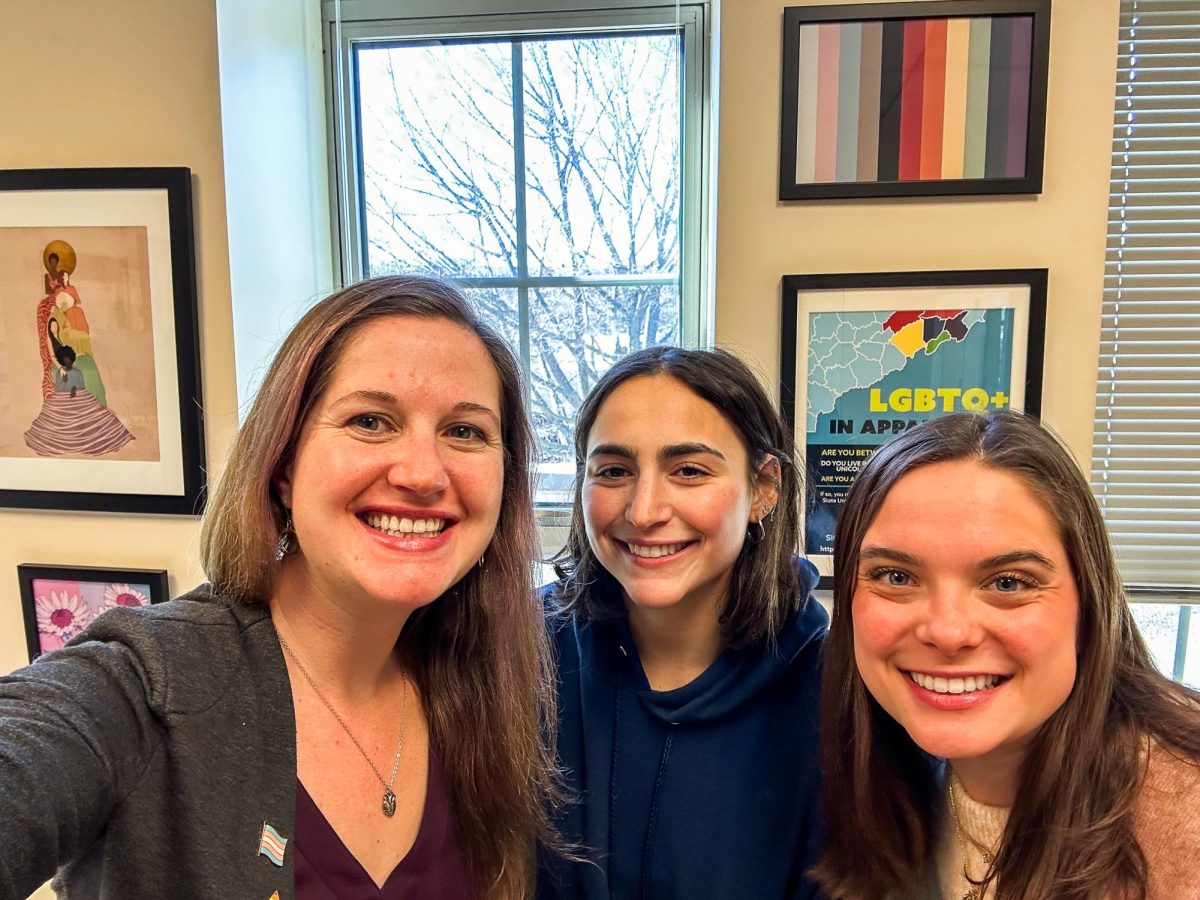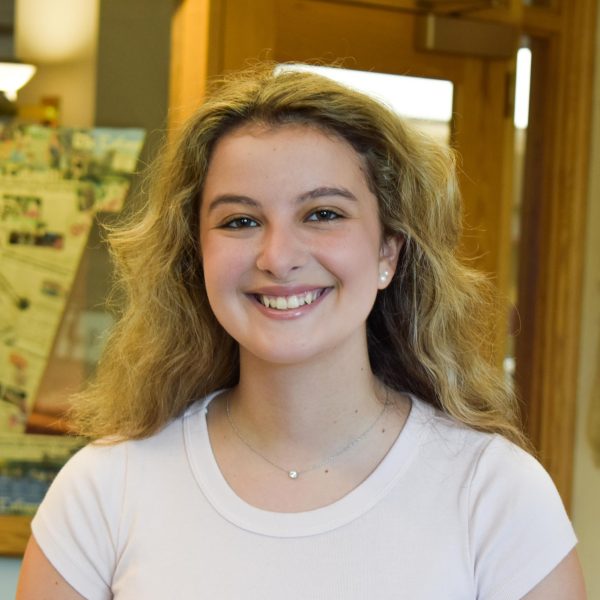Abbey Mann’s community health lab centers around two things: students and data.
In Mann’s lab, students focus on data and forms of analysis pertaining to gender, healthcare and community while working on their own specialized studies.
“I try to tailor each experience to what students are interested in,” said Mann, an assistant psychology professor. “If somebody’s really interested in going to graduate school, then we try to work on as many parts of a study as possible to kind of get them lots of experience and exposure.”
One such student, Grace Comfort ’25, considers Mann her mentor.
“Just being able to eventually learn how to qualitatively code, to be able to experience what it’s like to manage a study, to create a study manuscript and just do tons of literature reviews just has given me just amazing opportunities and mentorship,” Comfort said.
Comfort worked as a research assistant with Mann on a study centered around transgender access to healthcare.
“In a national study we’re doing there, she’s also supported some of the work I’m doing with folks in Florida around sexual and gender minority youth health care access,” Mann said.
Mann thinks students like Comfort can benefit from the skills they gain in her lab after they have graduated.
“I think there’s a range of different skills that any student in psychology can get from working in a lab, like interacting with people and organizing studies and learning to do quantitative and qualitative data analysis,” Mann said. “So these are our pretty applicable and useful skills we think.”
Comfort’s experience working with Mann has significantly shaped her career trajectory.
“It’s something that I think has given me a lot of academic and personal confidence,” Comfort said. “It has allowed me to really explore all aspects of myself within an academic setting and I’m just very grateful for the opportunity.”
In her sophomore year at Lafayette, Adriana Vergona ’25 joined Mann’s research lab and found a passion for psychology research.
“I followed along with a study that she had already been conducting, which was dealing with adolescent LGBTQ health care and minority stress … the study wasn’t really up and running at that point in time,” Vergona said. “So I kind of just conducted my own research on the side of that, it was really fun. I loved learning about that kind of stuff.”
Under Mann’s advisory, Vergona continued to do independent research on transgender identity development.
“I love that woman with my whole heart,” Vergona said. “Watching her do that kind of work just kind of inspired me to continue doing research in the future and as of right now, my plans for the future consist of me doing psychiatric research and hopefully working with queer people in the future.”
Before teaching at Lafayette, Mann taught at East Tennessee State University and worked on advancing transgender adults’ healthcare access.
Tennessee “has all kinds of different health care issues for everybody,” Mann said. “It’s also a really not as friendly a place for sexual and gender minority folks and so those issues are kind of compounded there.”
After finding that her experience in East Tennessee changed her teaching style, she realized what she wanted to focus on at Lafayette.
“When I got here, I started a couple of other projects related to health care access for sexual and gender minority folks and a study on nonbinary adult health care,” Mann said. “I’m also talking to local community organizations — that work takes some time to build.”
Mann is glad she can inspire her students to focus their studies on healthcare for sexual and gender minorities.
“I’m happy to talk to anyone who’s interested in issues of psych and gender, health psych, to think about the research we do and involve folks in kind of improving their own communities on campus,” Mann said.
Correction 2/16/2024: A previous version of this article referred to Grace Comfort as a senior. She is a junior.























































































































